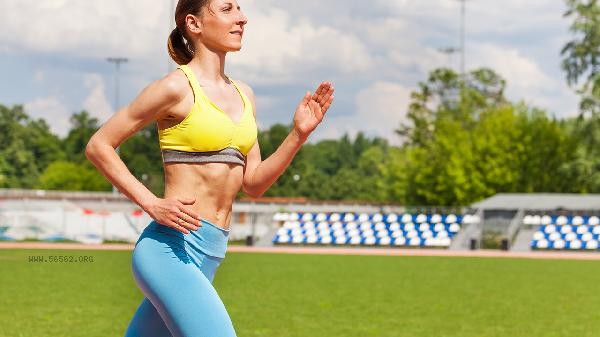The urge to defecate while running may be related to factors such as increased gastrointestinal motility, dietary stimulation, and neural reflexes, and is usually a normal physiological phenomenon. The main reasons include enhanced gastrointestinal reflex, improper diet timing, intestinal sensitivity, excessive water intake before exercise, and the presence of underlying gastrointestinal diseases.

1. Enhanced Gastrointestinal Reflex
During running, body vibrations can stimulate accelerated intestinal peristalsis, which can easily trigger defecation reflex. Especially during morning runs, the abdominal state is more likely to trigger this reaction, as the accumulated intestinal contents at night move downwards under the influence of gravity during exercise. It is recommended to warm up moderately before running to help the body adapt to the exercise rhythm and reduce the stimulation of the intestines caused by sudden exercise.
2. inappropriate eating time
Eating a short amount of food before exercise can significantly increase the probability of defecation, especially high fiber foods or dairy products. Food enters the intestines before being fully digested in the stomach, and the shaking during running can easily cause constipation. It is recommended to finish eating two hours before running and choose easily digestible foods such as bananas, white bread, and other carbohydrate foods.
3. Intestinal Sensitivity
Some individuals with irritable bowel syndrome are more likely to experience bowel movements during exercise, which is related to abnormal autonomic nervous system regulation. Excitement of the sympathetic nervous system during running may alter intestinal rhythms, leading to symptoms such as abdominal pain and diarrhea. This group of people should avoid high-intensity running and choose low impact exercises such as brisk walking. If necessary, consult a doctor for intestinal function assessment.

4. Drinking too much water before exercise
Excessive fluid can increase the volume of intestinal contents, and shaking during running can accelerate fluid flow through the intestine. Especially chilled beverages may stimulate the intestinal mucosa and trigger a contraction reaction. It is recommended to drink water in small amounts multiple times. One hour before exercise, the amount of water should be controlled within 200 milliliters, and the water temperature should be at room temperature.
5. Basic gastrointestinal diseases
Chronic enteritis, irritable bowel syndrome and other diseases may worsen symptoms during exercise, which is related to intestinal mucosal inflammation and abnormal neural regulation. The typical manifestation is post exercise abdominal pain accompanied by a sense of urgency to defecate. It is recommended that these patients choose low impact exercises such as swimming and yoga, and if necessary, follow medical advice to use medications such as montmorillonite powder and bifidobacteria to regulate intestinal function.

Daily habits can be identified by recording diet and exercise logs, warming up adequately before running, and planning the restroom route. If the symptoms continue to worsen, consider colonoscopy to rule out organic diseases. Maintaining a regular schedule and balanced diet can help improve intestinal sensitivity, and high fiber foods should be consumed in moderation to avoid increasing intestinal burden. Mild defecation after exercise is a normal phenomenon, but accompanied by abnormal conditions such as abdominal pain and bloody stools, it is necessary to seek medical attention in a timely manner.







Comments (0)
Leave a Comment
No comments yet
Be the first to share your thoughts!